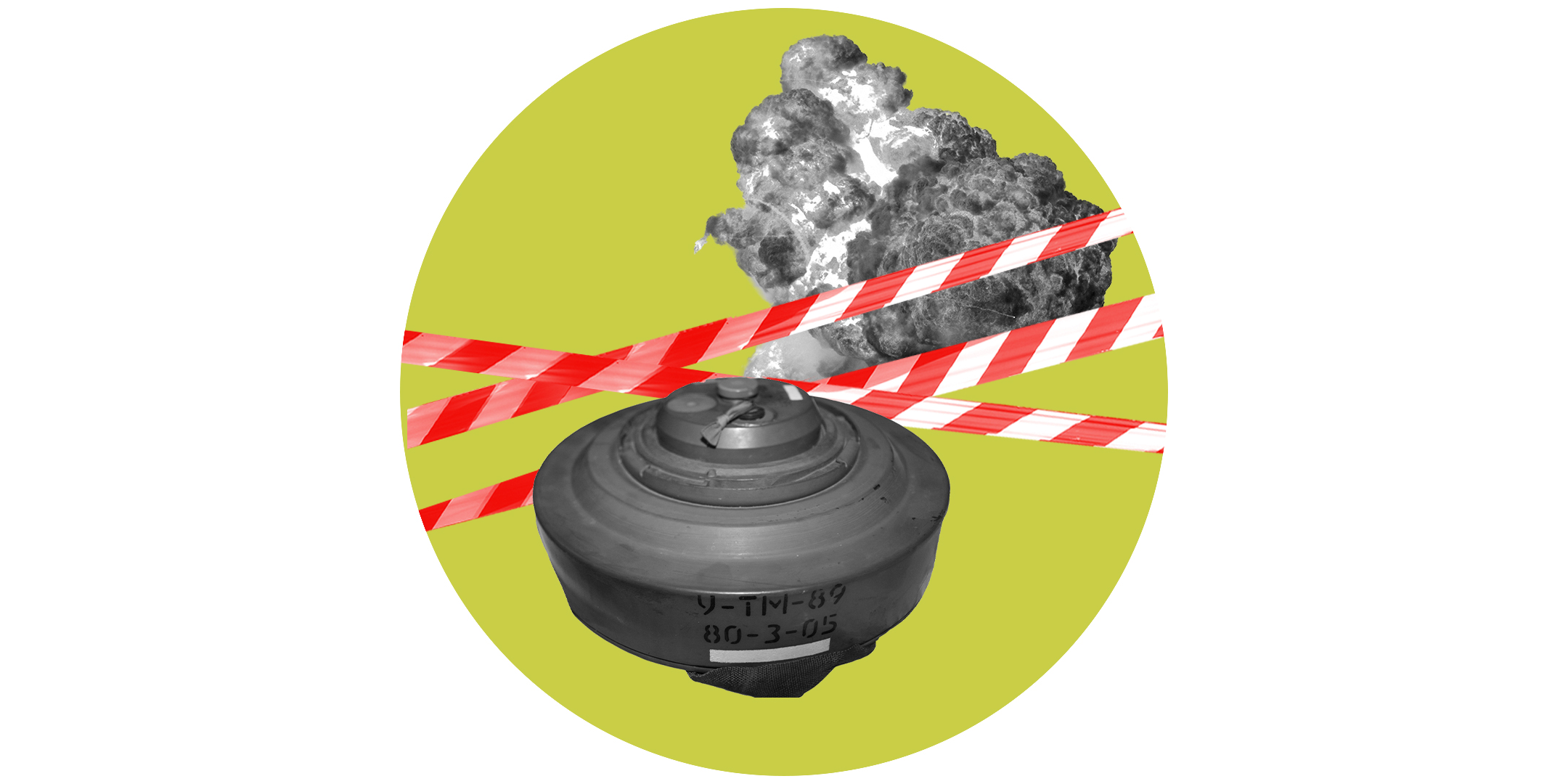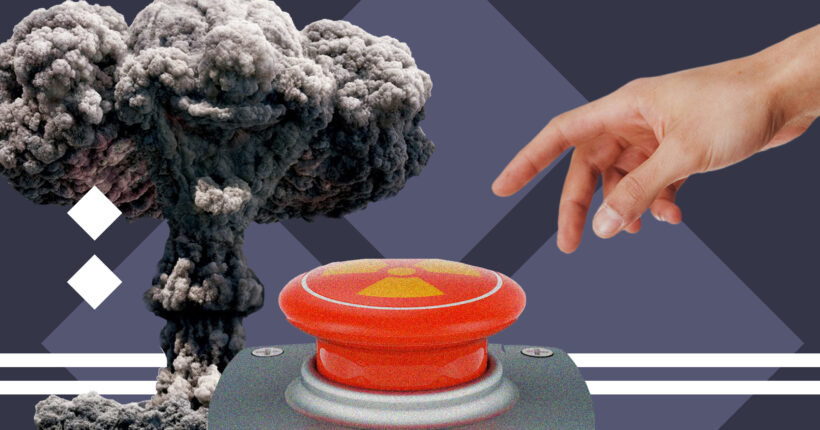
What is the problem?
Russia's rhetoric on nuclear arms gave rise to a new wave of concern among Ukraine's allies. In late March 2023, the aggressor stationed ten aircraft capable of carrying tactical nuclear weapons in Belarus. Moscow had already transferred several Iskander tactical missile systems that could be used to launch nuclear weapons from the neighboring state of Ukraine. NATO deemed this rhetoric "dangerous and irresponsible." Then, in early May 2023, the media again started brimming with messages of alleged plans of Russia to use nuclear weapons in Ukraine in the aftermath of a drone strike over the Kremlin.
What is the solution?
What is Russia's nuclear potential?
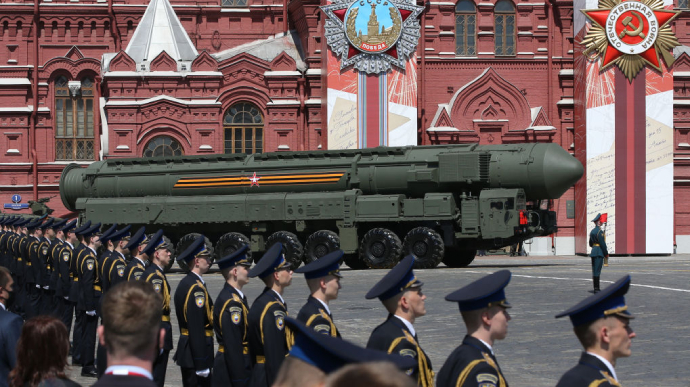
Photo: Getty Images
When the Soviet Union collapsed in 1991, all nuclear weapons were deployed in the four newly-independent states of Russia, Ukraine, Belarus, and Kazakhstan. In 1992, the states redeployed their arsenal back to Russia. Ukraine had the world's third-largest nuclear arsenal, but the state relinquished it to Russia as a part of the infamous Budapest memorandum in 1994 in exchange for "security assurances."
Since the start of the full-scale war, Putin has already threatened to use nuclear weapons four times.
US intelligence believes these threats were meant to push back the West from helping Ukraine retake its territories, rather than as a sign of planning an actual nuclear war.
Some experts worry Russia might use a small tactical weapon in Ukraine as a "game changer", to avoid defeat or announce a ceasefire.
"I am legitimately worried that in that circumstance, Putin might use a nuclear weapon — most likely on the ground in Ukraine, to terrify everyone and get his way. We are not at that point yet," James Acton, the US nuclear expert, says.
Russia's nuclear doctrine allows the attack after "aggression against Russia with conventional weapons when the very existence of the state is threatened"
It is a concerning argument. Russia claimed 18% of Ukraine's territory as part of its state. Putin could make up a nuclear attack on these lands as a response to Ukraine's forces liberating occupied territories.
At the same time, Putin is believed to turn down the intention, as many Russians inhabit occupied regions of Ukraine. Breaking the post-World War II nuclear taboo would not change the tactical situation on the battlefield.
Should Russia's nuclear treaty suspension be a concern?
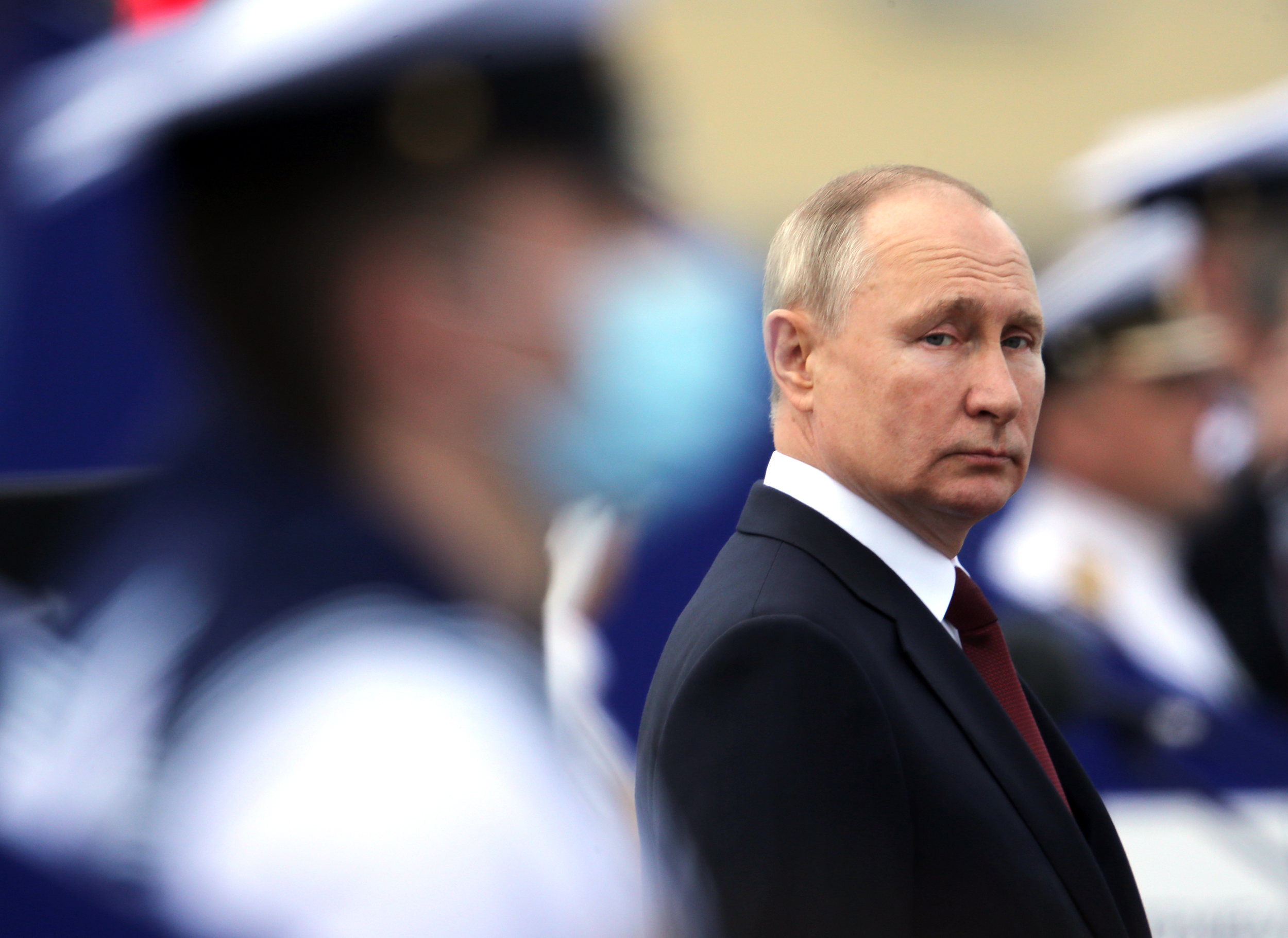
Photo: Getty Images
On February 22, Putin announced his state was suspending its participation in the nuclear arms treaty with the United States that limits the two sides' strategic nuclear arsenals.
Russia's president claimed the state was not withdrawing from the treaty. Analysts, however, believe this move ruined the last remaining pillar of arms control between the US and Russia. Both states hold nearly 90% of the world's nuclear warheads. Russia's move means verifying ongoing compliance with the treaty would become more complicated.
"Suspension of the treaty is not equal to leaving the treaty, I assume there will be no Russian build-up above the treaty limits," Andrey Baklitskiy, member of the UN Institute for Disarmament Research, states.
Will Russia use nuclear weapons?
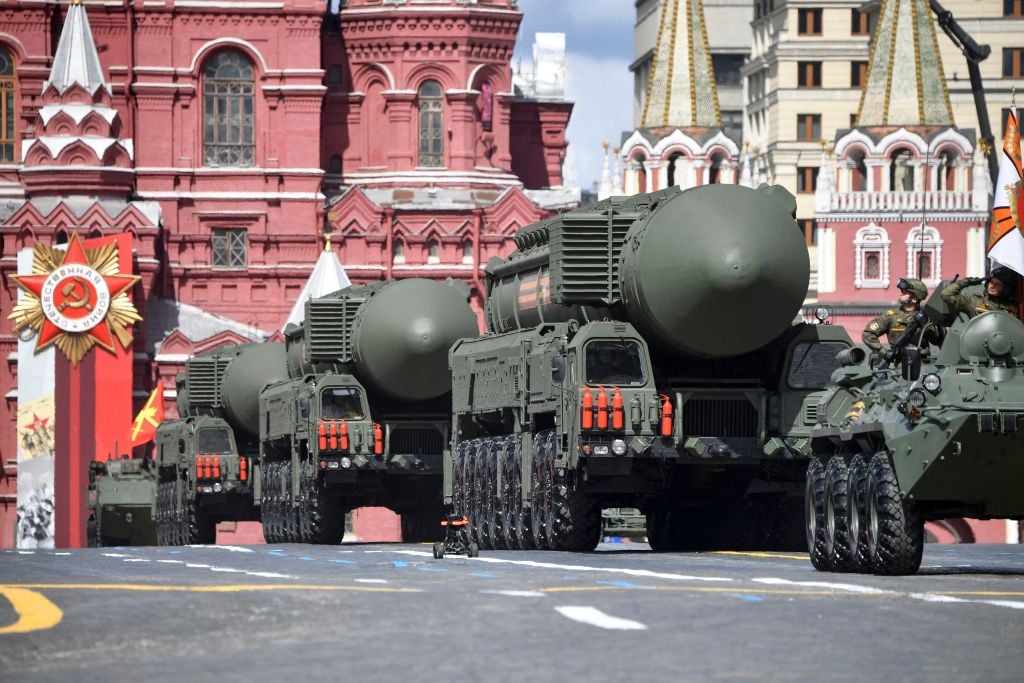
Photo: AFP via Getty Images
In the aftermath of the warheads' deployment to Belarus, the US intelligence stated there was no indication that Russia plans to use nuclear weapons in Belarus.
"We have not seen any reason to adjust our own strategic nuclear posture, nor any indications Russia is preparing to use a nuclear weapon. We remain committed to the collective defense of the NATO alliance," the Pentagon's statement says.
As the situation escalated in early May 2023, Director of National Intelligence Avril Haines told the Senate Armed Services Committee that still, Russia is very unlikely to use its nuclear weapons. "It's very unlikely, is our current assessment," the top official stated.
Analysts suggest Putin has other tools for achieving his objectives, like overwhelming forces, conventional weapons, propaganda, and psychological operations among civilians in the Russian-controlled regions of Ukraine.
Another leverage, China, might also deter Russia from using tactical nuclear weapons. The latest agreements after Xi Jinping's visit to Moscow demonstrate the inevitable Russia's dependence on China's resources, including the transfer of sanctioned ammunition and components. If Russia does try to launch a nuclear weapon, China would return to its neutrality and lose interest in Russia for a long while.
However, setbacks by Russia have raised concerns that Putin could use nuclear weapons to break a stalemate regarding Donetsk and Luhansk regions. The Royal United Services Institute think-tank said there could be a "moment of maximum danger" if Russia faced a large-scale defeat.
What would Ukraine's allies do?
It is currently hard to predict any scenario the US and NATO would implement if Russia actually uses nuclear weapons in Ukraine. The North Alliance may restrain itself from the response, as happened with Russia's missiles crossing the borders of Poland and Croatia. European officials believe Britain, France, and the US would use air reinforcements to intrude into the nuclear conflict in Ukraine.
The US might want to draw a large warning line. The White House assured Russia would notice "catastrophic consequences" if it launches nuclear weapons into Ukraine. President Joe Biden's choices would include a non-military response. A nuclear strike or a conventional attack could risk escalation, which would lead the US to a direct war with Russia.
A more positive scenario includes the complete elimination of Russian forces on Ukraine's territory, initiated by the US.
"To give you a hypothetical, we would respond by leading a NATO — a collective effort — that would take out every Russian conventional force that we could see and identify in Ukraine and also in Crimea and every ship in the Black Sea," David Petraeus, former CIA chief, concluded.



